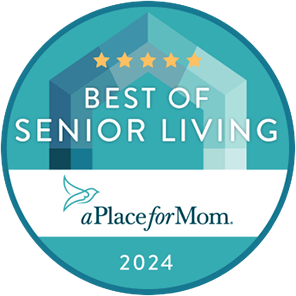
Learn why dementia patients wander at night, how to prevent it, and when memory care is the safest option for your loved one in San Diego.








Stellar Care understands that caring for those with progressing dementia comes with its own set of challenges and care tasks. It is our belief that our residents deserve personalized care and support, and to live a life with dignity and purpose.
Our San Diego caregivers are trained to provide assistance with Activities of Daily Living, or ADLs.
By ensuring that these daily needs are met, often with abundant encouragement, reassurance, and redirection, our residents are better able to enjoy their daily routine comfortably.

Stellar Care Memory Care services offer three nutritious homemade meals every day.
Our menu features delicious soups made from scratch and salads and entrees using fresh seasonal ingredients. Options for those with diabetes, dietary preferences, and religious observances are available as well. We also offer snacks and hydration available throughout the day and hydration stations with filtered and flavored water are available throughout the community.


Stellar Care prides itself on having a full schedule of activities for residents at various levels of their dementia.
Our Activities staff offer tailored activities for residents to engage in socialization and interaction to stimulate the mind and the body.
Stellar Care outings are wildly popular with our residents and often include ice cream trips, drives to the beach, and visits to some of San Diego’s most popular sights such as Balboa Park, Seaport Village, and Old Town San Diego.

Memory care provides a secure and structured environment where residents can thrive with set routines. Implementing a routine is essential in relieving anxiety for individuals living with Alzheimer’s disease or other forms of dementia. Our caregivers and activities staff provide meals, help residents with personal care tasks, and assist with enriching activities throughout the day. Our staff is trained to assist with the unique situations that come up when caring for people with memory impairment.
Stellar Care specializes in caring for those with various forms of dementia, including Alzheimer’s disease. A memory care facility becomes the best option for someone, once it is decided that living in an assisted living setting or at home is no longer a safe and suitable environment. A Memory Care community such as Stellar Care is a secure community meaning that your loved one will be safe within the bounds of the community. If your loved one tends to wander, we have plenty of space for them to exercise, to explore safely within our building, and will be encouraged to join the many activities that are offered throughout the day.
Additionally, our staff is trained to care for the unique needs of those who are living with progressing dementia. Not only do we have caregivers attending to the needs of our residents but staff from various departments are cross-trained in dementia care so that residents can receive the type of compassionate care and understanding from the entire team.
Memory care can be similar to assisted living in that both communities provide housing, meals, and activities so that residents can continue to lead fulfilling lives. For a Memory Care community such as Stellar Care, we provide tailored interactive activities that match the resident’s current cognitive levels. Additionally, we have high staffing levels so that residents can receive the appropriate level of care and attention.
Typically, assisted living communities do not offer a secured building, and residents can come and go at their own will. This can present a significant safety concern for those with memory impairment. Stellar Care is a secure building and our residents are not able to wander out without accompaniment. Residents are able to leave the memory care community with their loved ones at any time.
Our Memory Care pricing starts at a base rate with additional fees for care needs. For pricing information, please call or email our team. Stellar Care accepts private payment plans or Long Term Insurance plans.
Memory care provides a safe and structured home for residents who need routine. People with memory issues need extra routine to ensure they can care for themselves as long as possible. Dementia care supports the specific challenges of the condition and often requires more help than routine for memory.
A memory care room offers a single luxurious room, while a suite offers two adjoining rooms. Suites are an excellent option for couples as the room offers a sitting room and a bedroom. Patients also get a private bathroom to share. Additionally, the room includes cable television, housekeeping, emergency call systems, laundry, and cleaning services.
Memory care activities help keep patients active, social, and comfortable while helping their memory issues. The activities are tailored to each resident to help stimulate their body and mind. Each patient can get exactly what they need to find enjoyment even without a stellar memory with several fun options. Some options include memory-centered art classes, musical guests, sensory adventures, dominos, new updates daily, gardening, casino card games, walking club, stretching and fitness, and discussion groups for film. Other activities are available too that may help memory patients.
Our Memory Care price begins with a basic rate, with additional expenses based on the level of care required. Please get in touch with our staff for pricing information. In addition, stellar Care offers private payment plans and Long-Term Insurance. All of the prices are based on monthly services and differ based on the patient’s needs.
If your elderly family member shows any of the following signs, it’s time to start investigating memory care. The signs include a change in behavior, confusion, disorientation (especially in unsafe circumstances), a decline in physical health, incontinence, or if their caregiver has declined or passed away. Schedule an appointment with their doctor to gain their opinion to help you make the decision.
Adult children and family members who have aging parents in memory care frequently experience fear and have questions about visiting them. According to memory care professionals, this type of anxiety is normal and is usually the result of a lack of information about how the parent may react. Visit frequently at first to ensure your family members feel loved and safe during the first few weeks before switching to a schedule that works best for you and your parent.
Emergency alarm systems, protected outdoor spaces, and keypad entrance are common safety elements in memory care, as are tailored programming and easy-to-navigate features like color-coded halls and roomy hallways. They also include facilities for seniors who are in the early or late stages of dementia. Staff members are specifically trained to assist residents and keep them safe and happy while providing them with the best quality of life possible.
Memory care services are usually given in a standalone memory care facility or a particular space within an assisted living community. Unlike skilled nursing institutions (commonly known as nursing homes), memory care units are designed to resemble a traditional residential setting. Staff trained to care for the special requirements and expectations of dementia patients are on duty 24 hours a day.
Memory care is a sort of long-term care specifically tailored for persons who have Alzheimer’s disease or dementia. Memory care communities, like long-term care communities, provide assistance with activities of daily living (ADLs), but they also provide specialized care for those with memory loss. Long-term care is a service for the elderly who require assistance with daily activities. Seniors who can no longer live independently get a wide range of medical and personal services in long-term care homes.









Learn why dementia patients wander at night, how to prevent it, and when memory care is the safest option for your loved one in San Diego.

Compare memory care and assisted living services, costs, safety, and staff to find the best care option for your loved one in San Diego.

Discover average assisted living costs, payment options, and affordable care solutions for seniors, including memory care in San Diego.

Explore the differences between assisted living and independent living to find the best option for your loved one’s care needs.

Discover fun and meaningful activities for dementia patients, including games, crafts, and easy ideas to do at home.

Compare assisted living vs nursing homes by cost, care level & services. Learn which senior care option fits your loved one’s needs.

A Memory Care Community
4518 54th Street • San Diego, CA 92115
Phone: (619) 287-2920
LICENSE #374603625
Copyright © Stellar Care | Website Development by blue media marketing, Inc.